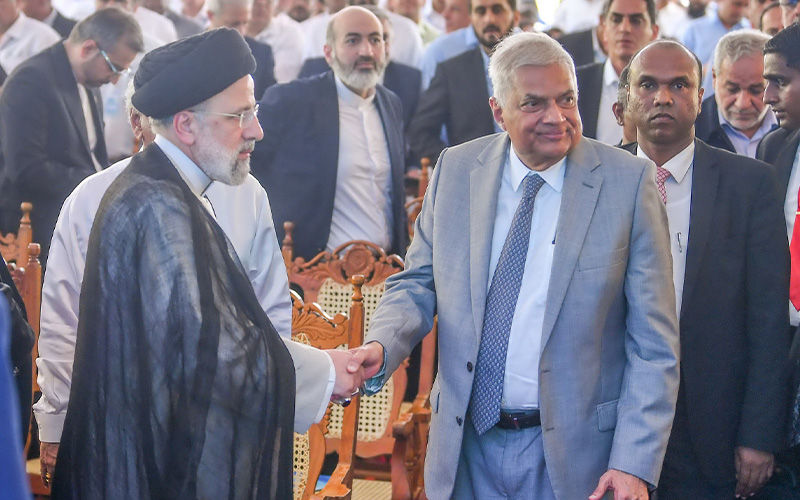Iranian Agriculture Minister Mohammad-Ali Nikbakht has stressed the need to further expand cooperation with Sri Lanka in trade and agriculture.
Last year, Iran imported over $70 million of products, especially tea and coconut, from Sri Lanka, Nikbakht has pointed out, IRNA wrote.
Importing tea from Sri Lanka, through a barter mechanism, is a proper step, he noted.
Iran imports more than 70,000 metric tons of dried tea leaves annually, he said, adding that nearly 30,000 mt of the product is produced in northern parts of the country.
The Islamic Republic is ready to provide Sri Lanka with its know-how in various fields of livestock, fisheries, and aquaculture, the official noted.
Earlier this month, Iran’s President Ebrahim Raisi paid an official visit to Sri Lanka to pursue the expansion of ties between the two countries.
Raisi’s visit to Sri Lanka marked the first by an Iranian president in 16 years.
During his visit, President Raisi conveyed Iran’s eagerness to strengthen relationships with Sri Lanka and other Asian countries.
Raisi made the remarks at the inauguration ceremony of a significant multi-purpose project developed by Iranian contractors in Sri Lanka. This project had faced prolonged delays due to international sanctions against Iran.
The Uma Oya Multipurpose project, valued at $514 million, aims to generate 290 GWh of electricity annually and enhance irrigation for agricultural purposes.
Despite facing challenges such as sanctions, technical hurdles, and the COVID-19 pandemic, the project’s construction was overseen entirely by Iran’s FARAB engineering group.
While Iran initially contributed $50 million to the project, funding was interrupted in 2013 due to international sanctions. However, the Sri Lankan government opted to continue the project using its own funds, with the same Iranian contractor.
The project comprises two dams, a 28-kilometer water transmission tunnel, and a 120-MW underground power plant. It serves as a showcase of Iran’s technical and engineering prowess in areas such as dam construction, water transfer, and electricity production.
During the ceremony, Raisi emphasized Iran’s readiness to expand bilateral relations not only with Asian countries but also with neighboring and independent states.
“We stand fully ready to further expand bilateral relations with all Asian countries, our neighboring countries, and sovereign and independent states,” Raisi said.
He highlighted Sri Lanka’s status as a sovereign and independent nation with policies aligned with Iran, which presents opportunities for fruitful cooperation between the two countries.
During the visit, five agreements, or Memorandums of Understanding (MOUs), were signed between Iran and Sri Lanka.
President Raisi’s visit signifies both nations’ commitment to deepening ties and expanding cooperation across various sectors, including the economy, tourism, science, and technology.
Sri Lanka’s Foreign Minister, Ali Sabry, expressed readiness to implement economic projects led by Iranian experts, acknowledging Iran’s industrial and economic capabilities.
(Tehran Times)


